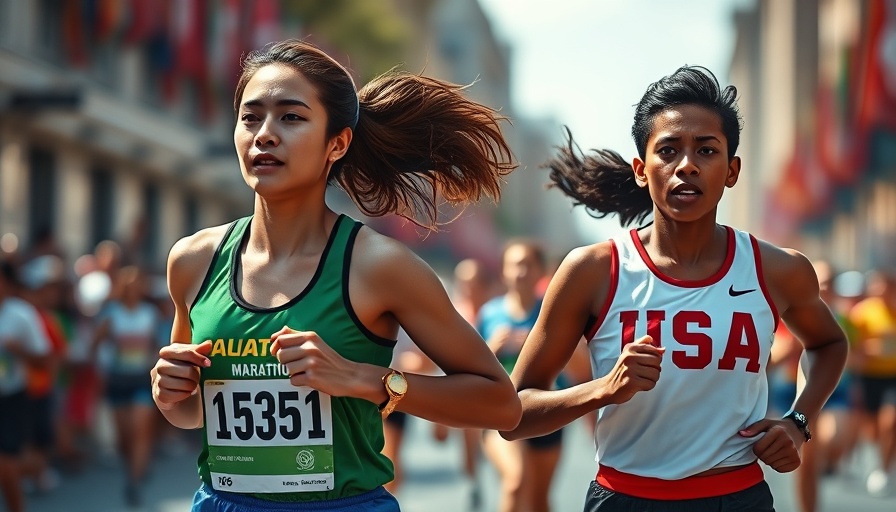
Debate Over Trans Inclusion in Women's Sports Heats Up
The ongoing debate surrounding trans inclusion in women's sports has been reignited by the backlash faced by Natalie Daniels, a marathon runner and new mother. After publicly opposing the inclusion of trans athletes in women's categories, Daniels became a target for a wave of online threats and vitriol, leading her to reveal that even Olympian athletes have played a role in spurring this backlash.
Understanding the Context: What Sparked the Dialogue?
Daniels, who has been vocal about her stance, stated that her position aligns with many who feel that allowing trans women to compete in women's events undermines the physical advantages that biological males possess. This conversation gained traction after several high-profile athletes voiced similar concerns, creating a ripple effect in the sports community. With an increasing number of sports leagues revising their policies on trans participation, the discussion has become not just a matter of sport but one intertwined with broader societal values regarding gender identity.
Public Reaction: A Divided Society
Following Daniels' statements, the online response was swift and severe. Supporters of trans rights criticized her opinions vehemently, while others rallied to her defense, arguing for the importance of women's rights in competitive sports. This division illustrates a growing fracture in societal understanding of gender identity, especially in contexts historically exclusive to biological women. Many commentators have pointed out that this debate reflects broader issues within politics and public health, as issues of identity and fairness come to the forefront.
A Call for Understanding: The Human Element
For Daniels, the experience has been deeply distressing, with the personal toll of receiving threats weighing heavily on her mental health. While athletes like Daniels are at the forefront of this discourse, they are also human beings facing significant challenges. The emotional and psychological impact of public scrutiny in today's social media landscape cannot be underestimated. As conversations evolve, it is crucial to recognize and empathize with the individuals involved, fostering a dialogue that is respectful and productive rather than hostile.
Balancing Fairness: Research and Perspectives Needed
The complexities of this issue call for nuanced discussions backed by research and evidence. A growing body of studies has examined the implications of trans individuals participating in sports, aiming to assess fairness and equity. Some findings suggest that transition-related changes may not eliminate performance advantages entirely, while others argue for the inclusivity that allows individuals to participate authentically in their identified gender. This debate is continuously evolving, necessitating a commitment to understanding and education to settle on a fair pathway forward.
What Lies Ahead: Future Trends in Sports Regulations
As the conversation changes, many are left wondering what the future holds for trans athletes in competitive sports. Will sports organizations continue to adapt their policies in light of public sentiment, or will current frameworks become more stringent? Future regulations will likely involve compromises aimed at addressing both inclusion and fairness, perpetuating discussions that transcend sports into public policy. Athletes across the spectrum aim to be recognized not just for their competitive abilities, but for their dignity as individuals.
Conclusion: Join the Conversation
As debates surrounding trans inclusion continue across platforms, athletes and the public alike must engage in respectful dialogue that acknowledges all facets of these issues. It is imperative that we ensure fair play while being inclusive and considerate of the experiences of all individuals involved in this critical discussion. Engaging respectfully in this conversation will help foster a more understanding and equitable sports culture for future generations.
 Add Element
Add Element  Add Row
Add Row 



 Add Row
Add Row  Add
Add 


Write A Comment